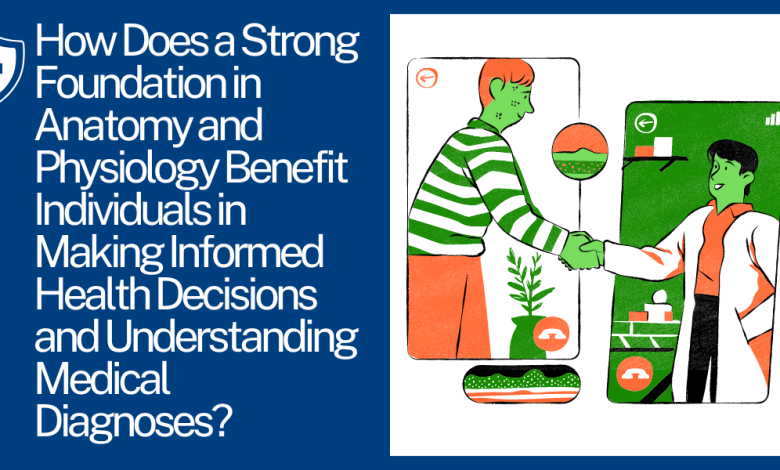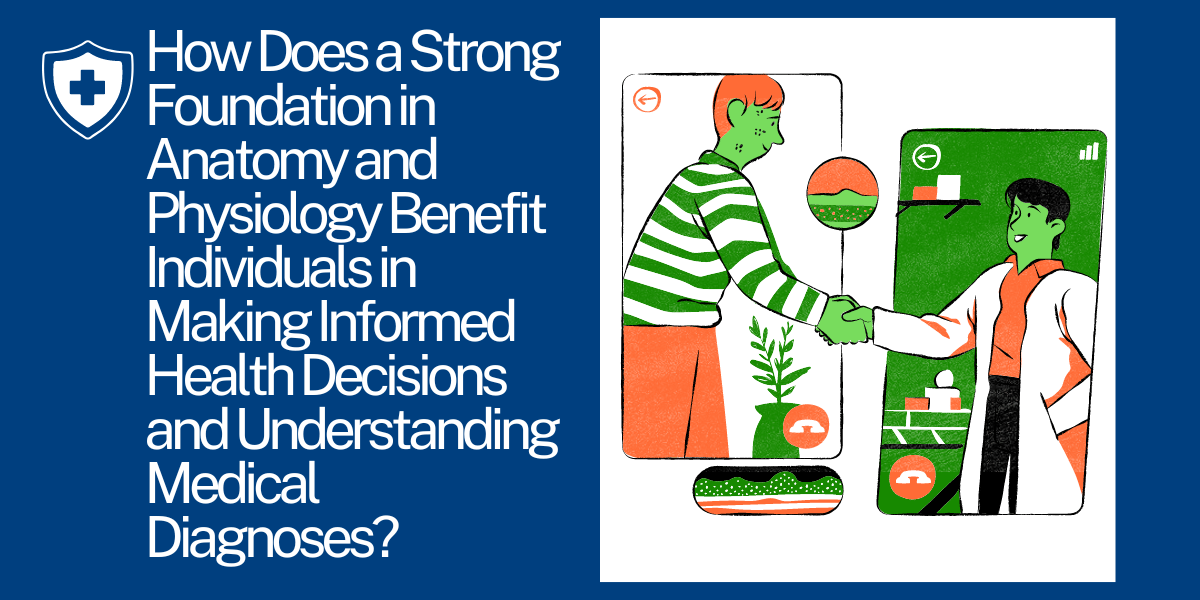How Does a Strong Foundation in Anatomy and Physiology Benefit Individuals in Making Informed Health Decisions and Understanding Medical Diagnoses?
Empowering Health Choices: The Role of Anatomy and Physiology Knowledge

Anatomy and physiology are the cornerstones of understanding the human body and how it functions. For individuals, a strong foundation in these fields is more than just academic knowledge; it’s a key to making informed health decisions and comprehending medical diagnoses. In this blog post, we’ll explore how a deep understanding of anatomy and physiology empowers individuals to take control of their health, communicate effectively with healthcare professionals, and navigate the complex world of medical information.

Informed Health Decisions
A. Understanding Body Functions:
Knowledge of anatomy and physiology helps individuals comprehend how different organs and systems work. This understanding allows them to make informed choices about their lifestyles, including diet and exercise.
B. Recognizing Warning Signs:
Awareness of normal bodily functions enables individuals to recognize potential warning signs when something isn’t right. For example, they may notice subtle changes in their body and seek medical attention promptly.
C. Interpreting Symptoms:
Individuals with a strong foundation in anatomy and physiology can better interpret their symptoms. They understand the possible underlying causes, which helps healthcare providers in the diagnostic process.
Effective Communication with Healthcare Professionals
A. Describing Symptoms:
When individuals can articulate their symptoms accurately, healthcare professionals can make more precise diagnoses. Understanding anatomical terms allows patients to describe pain or discomfort in a way that aids diagnosis.
B. Engaging in Informed Discussions:
With knowledge of anatomy and physiology, individuals can engage in informed discussions with their healthcare providers. They can ask questions, seek clarifications, and actively participate in treatment decisions.
Navigating Medical Information
A. Evaluating Health Information:
In the age of the internet, access to medical information is abundant but not always reliable. A strong foundation in anatomy and physiology equips individuals with the skills to evaluate the credibility of health sources.
B. Research and Advocacy:
Those well-versed in anatomy and physiology can conduct research and advocate for their health effectively. They can explore treatment options, participate in clinical trials, and contribute to discussions about their conditions.
Promoting Preventive Healthcare
A. Proactive Health Measures:
Armed with knowledge, individuals are more likely to engage in preventive healthcare. They understand the importance of regular check-ups, screenings, and vaccinations to maintain their well-being.
B. Lifestyle Choices:
Understanding how lifestyle choices impact health allows individuals to make educated decisions about factors such as smoking, alcohol consumption, and stress management.
Conclusion
A strong foundation in anatomy and physiology is a powerful tool for individuals seeking to take control of their health. It empowers them to make informed decisions, communicate effectively with healthcare professionals, and navigate the vast sea of medical information. In an era where health is a top priority, this knowledge serves as a compass, guiding individuals toward better choices, improved well-being, and a deeper understanding of their own bodies.




